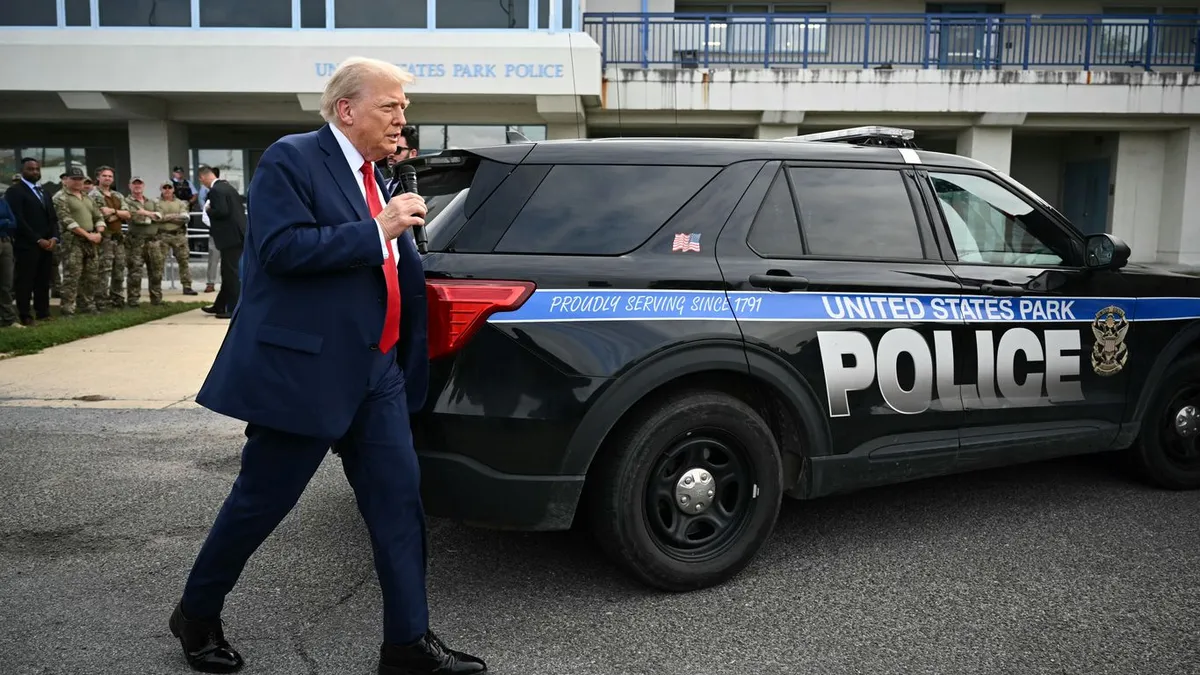
Former President Donald Trump is set to sign an executive order on Monday aimed at abolishing cashless bail for arrested suspects in Washington, D.C. This pivotal move is part of a broader initiative led by Trump to exert federal control over law enforcement in the capital, which has resulted in the deployment of thousands of federal agents and National Guard troops across the city.
Under the current cashless bail system, individuals arrested do not have to pay monetary bail to be released from custody prior to their trial. This policy has garnered significant attention as Trump previously criticized it, labeling it a "disaster" during his announcement to federalize the D.C. police force. Despite these claims, analysts highlight that crime statistics do not support the notion that cashless bail leads to increased violence, noting that only a small percentage of defendants face arrest for violent crimes while awaiting trial.
A White House official disclosed that the upcoming executive order could potentially withhold federal funding or government-backed project approvals from D.C. if the city fails to eliminate its cashless bail policy. The order will instruct law enforcement agencies to prioritize taking arrestees into federal custody rather than local custody. Officials from the Trump administration argue that federal judges are more inclined to detain crime suspects before trial compared to their D.C. counterparts.
Washington, D.C. was a pioneer in eliminating cash bail in the 1990s, becoming one of the first jurisdictions to adopt such a policy. Under D.C.’s current framework, judges assess whether a defendant should be released based on their likelihood of appearing for trial. Other states, such as Illinois, have also abolished cash bail, while some, including New York, California, and New Jersey, have implemented restrictions on it.
The debate over cashless bail is contentious. Supporters argue that it provides a financial incentive for defendants to attend their trials and that releasing them may pose a risk to community safety. On the other hand, critics assert that cash bail disproportionately affects low-income individuals who cannot afford to pay bond, and they cite studies indicating minimal correlation between cashless bail and rising crime rates.
The topic of cashless bail has emerged as a critical issue in the 2024 presidential campaign. Trump has committed to a stringent anti-crime platform and has made it clear that he intends to challenge the cashless bail system—a practice that has been criticized by conservatives and embraced by some liberal factions. "When I'm re-elected, I will crack down on the left-wing jurisdictions that refuse to prosecute dangerous criminals," Trump stated, emphasizing his intention to eliminate cashless bail policies that he believes endanger public safety.
In contrast to Trump’s stance, Vice President Kamala Harris has expressed support for cashless bail, advocating for a criminal justice system that protects all Americans, irrespective of their economic status. A spokesperson for Harris highlighted her belief in equality within the justice system. Meanwhile, a representative for D.C. Mayor Muriel Bowser declined to provide any comments regarding the impending executive order.
Trump is urging Congress to enact a nationwide ban on cashless bail, taking aim at policies in cities like Chicago and New York. However, critics argue that Congress may lack the authority to dictate how states manage bail policies, although they could potentially tie bail reforms to federal funding initiatives.